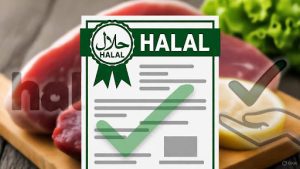Halal certification is a process through which a product is verified to meet Islamic dietary laws. This involves ensuring that every ingredient and the manufacturing process complies with halal standards. The halal certification requirements in the USA can vary, making it crucial for businesses to partner with reputable halal certification agencies. These agencies help ensure compliance and provide guidance throughout the certification process.
In recent years, the demand for halal products has surged in the United States, driven by a growing Muslim population and an increasing interest in ethical and healthy eating. However, many companies face significant challenges when seeking halal certification, often stumbling over common pitfalls that can hinder their success. Understanding these challenges is essential to navigating the complex landscape of halal certification in the USA.
Common Mistakes in Halal Certification
While many businesses strive to obtain the halal certification label, several common mistakes can derail their efforts. Here are some of the most frequent missteps:
- Choosing the Wrong Halal Certifiers
One of the first steps in the halal certification process is selecting the right halal certifiers. Many companies overlook the importance of researching the most trusted halal certification agencies. A reputable certifier will not only understand the requirements but also have a strong track record of successful certifications. Without this expertise, businesses may find themselves with a certification that lacks credibility. - Incomplete Documentation
Proper documentation is critical for halal certification. Companies often fail to provide comprehensive details about their ingredients, sourcing, and production processes. Incomplete documentation can lead to delays or outright rejection of certification applications. Ensuring all paperwork is thorough and accurate is essential for a smooth certification process. - Neglecting Cross-Contamination Risks
Many companies mistakenly assume that a single halal ingredient makes an entire product halal. However, cross-contamination can occur during production, storage, or transportation. Businesses must implement strict protocols to prevent cross-contamination with non-halal products. This includes training staff on halal practices and maintaining a clean production environment. - Ignoring Local Regulations
Halal certification in the USA is not just about meeting Islamic standards; it also involves complying with local food safety regulations. Companies that disregard these regulations may face legal issues, fines, or revocation of their certification. It’s vital for businesses to understand the intersection of halal certification and local law. - Underestimating the Importance of Training
Staff training is often an overlooked aspect of halal certification. Employees should be educated about halal principles and practices to ensure compliance throughout the production process. Companies that neglect training may encounter issues that could have been easily avoided with proper education and awareness. - Failing to Keep Up with Industry Changes
The halal certification landscape is continuously evolving, with new regulations and standards emerging. Companies that do not stay informed about these changes risk falling behind. Regularly consulting with halal certification consulting services can help businesses adapt to new requirements and maintain their certification status.
The Role of Halal Certification Services in the USA
To navigate the complexities of halal certification, many businesses turn to halal certification services in the USA. These services not only assist with the certification process but also provide valuable resources and support. By working with experienced consultants, companies can avoid common pitfalls and ensure they meet all necessary requirements.

Case Study: McDonald’s and Halal Certification
A notable example of halal certification in the USA is the case of halal certification USA McDonald’s. The fast-food giant has made strides in offering halal options in select locations, showcasing its commitment to catering to diverse consumer needs. However, McDonald’s also faced challenges in ensuring compliance with halal standards. This illustrates the importance of working with trusted halal certifiers and understanding local market dynamics when pursuing halal certification.
Best Practices for Halal Certification
To achieve successful halal certification, companies should adopt the following best practices:
- Conduct Thorough Research: Investigate various halal certification agencies and choose one with a solid reputation.
- Document Everything: Maintain detailed records of ingredients, sourcing, and production processes.
- Implement Strict Protocols: Establish measures to prevent cross-contamination and ensure a halal-compliant production environment.
- Train Employees: Invest in training programs to educate staff on halal practices and compliance.
- Stay Informed: Keep up with changes in halal regulations and standards to maintain certification.
Conclusion
The journey to obtaining halal certification can be fraught with challenges, but understanding these common mistakes can help businesses navigate the process more effectively. By partnering with reputable halal certification agencies, maintaining thorough documentation, and investing in staff training, companies can avoid the hidden hurdles of halal certification.
For those looking for a reliable resource, Halal Watch World offers valuable insights and support in navigating the halal certification landscape. By leveraging their expertise, businesses can enhance their chances of obtaining certification and successfully meeting the growing demand for halal products in the United States.



